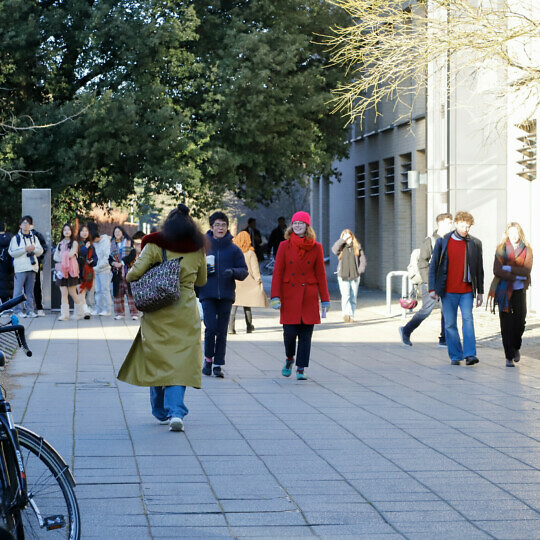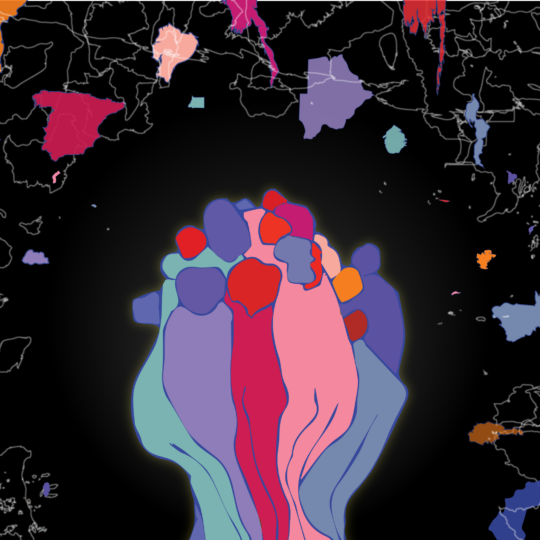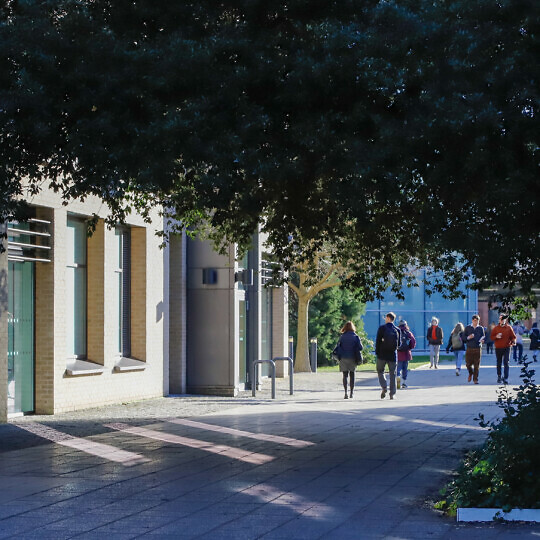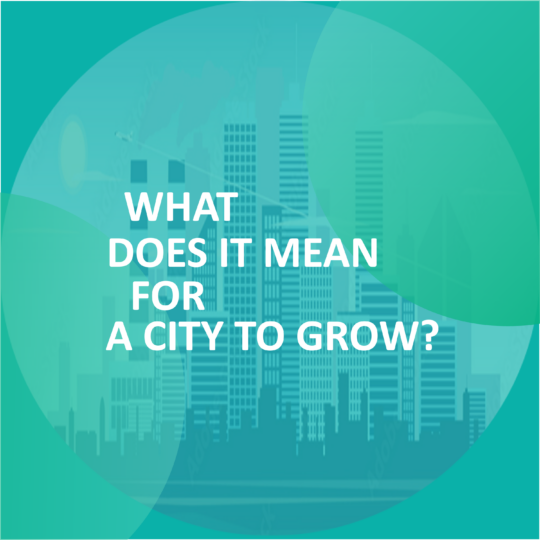| 12 Oct 2018 - 13 Oct 2018 | All day | SG1 and SG2, Alison Richard Building | |
- Description
- Programme
- Abstracts
Description
Registration for this conference is now closed.
Convenor
Asiya Islam (University of Cambridge)
Summary
This two-day conference aims to generate engaged, imaginative, and creative scholarship on work. Through the pressing demands of global capitalist development, not only has waged work acquired a ‘moral charge’, it has also undergone transformation. While some of these transformations – emergence of the ‘gig’ economy, increased precariousness of work and unemployment, instability of employment – are globally observable, they manifest in disparate ways in different parts of the world, often rendering mainstream theories of work inapplicable to understandings of work in the Global South.
Further, the focus on emerging or new forms and structures of work tends to side line continued (and new) forms of unpaid work, thus neglecting crucial analysis of inequalities of gender, race, class, caste and so on. In this context, this conference defines work broadly to encompass not only waged and unwaged work, but also repudiation of work, particularly in but not limited to the Global South.
Through engaged qualitative scholarship on work and non-work, this conference seeks to develop theoretical and analytical insights into the organisation and experience of work as informed by social inequalities, hence ‘The Social Life of Work’. By facilitating conversation among scholars from various disciplines – History, Sociology, Anthropology, International Development, Gender Studies – this conference will generate critical interdisciplinary understandings of work and non-work through varied methodological, analytical, and theoretical tools.
Sponsors



Supported by the Centre for Research in the Arts, Social Sciences and Humanities (CRASSH), Gates Cambridge, and the University of Cambridge's Department of Sociology.
Administrative assistance: events@crassh.cam.ac.uk.
Programme
| Day 1 - Friday 12 October | |
| 10.30 - 10.55 | Registration |
| 10.55 - 11.00 | Welcome and Introduction |
| 11.00 - 12.30 | Panel 1: Work and Non-Work Elizaveta Fouksman (University of Oxford) 'Universal social protection and the imperatives of work: Support and resistance from Southern Africa'
Miranda Sheild Johansson (University College London) '“Working for the municipality is like ploughing the land” – The definition and value of work in an Andean ayllu'
Discussant: Patrick McKearney (University of Cambridge) |
| 12.30 - 13.30 | Lunch |
| 13.30 - 15.00 | Panel 2: Rhythms of Work Hatice Yildiz (University of Oxford) 'Women’s Time and Men’s Time in the Age of Mass Production (A Study on Labour Patterns in the Indian Cotton Industry)'
Agustin Diz (London School of Economics) 'Unemployment, Roadblocks and the Rhythms of Hydrocarbon among the Guaraní of the Argentine Chaco'
Discussant: Anjali Bhardwaj-Datta (University of Cambridge) |
| 15.00 - 15.30 | Break |
| 15.30 - 17.00 | Panel 3: Work in Transition Kate Meagher (London School of Economics) 'Formalizing or Informalizing?: The Effect of Digital Ridehailing on Work and Transport in Nigeria'
Misbah Khatana Aamir (University of Cambridge) 'Negotiating Gendered Space: Exploring forces that construct gender prohibitive spaces and labour markets in Pakistan'
Discussant: Anna Barford (University of Cambridge) |
| 17.00 - 17.30 | Roundtable I |
| Day 2 - Saturday 13 October | |
| 9.30 - 11.00 | Panel 4: Work and Subjectivity Nandini Gooptu (University of Oxford) 'Changing the mind and behaviour of the poor at work: Political subjectivity of low-end service workers in India's corporate sector'
Garima Jaju (University of Oxford) 'Friends, enemies and “dirty politics”: Studying petty politics on the workfloor'
Discussant: Andrew Sanchez (University of Cambridge) |
| 11.00 - 11.30 | Break |
| 11.30 - 13.00 | Panel 5: Work, Wage, Space William Monteith (Queen Mary University of London) 'The post-wage economy: Re-theorising “work” from a Ugandan marketplace'
Sibylla Warrington (University of Cambridge) 'Urban material encounters and socio-spatial knowledge: Indigenous and low-income women’s work in Santa Cruz, Bolivia'
Discussant: Magdalena Soffia (University of Cambridge) |
| 13.00 - 14.00 | Lunch |
| 14.00 - 15.30 | Panel 6: Work and Working Lives Mechthild von Vacano (Freie Universität Berlin) ‘”Conduct of Life”: A subject-oriented approach to the study of (non-)work arrangements'
Asiya Islam (University of Cambridge) 'Resignation(s): Gender, precarious work, precarious lives'
Discussant: Tatiana Thieme (University College London) |
| 15.30 - 16.00 | Break |
| 16.00 - 17.00 | Roundtable II |
Abstracts
Agustin Diz (London School of Economics)
'Unemployment, Roadblocks and the Rhythms of Hydrocarbon among the Guaraní of the Argentine Chaco'
Drawing on the case of indigenous Guaraní settlements in the Argentine Chaco, this article explores local populations’ engagements with the oil and gas sector. In drawing attention to the temporality of extraction and the accompanying rhythms of flexible employment, it shows that local experiences of marginality and inclusion are sensitive to the localised histories of oil and gas production. The article argues that, in response to the hydrocarbon sector’s shifting and inconstant dynamics, unemployed Guaraní populations have found innovative ways to mobilise for employment and make claims for redressal. While the article emphasizes the demands that that these mobilised populations make, it also describes the political difficulties that confront precarious labour forces as they try to engage with uncertain labour markets.
Elizaveta Fouksman (University of Oxford)
'Universal social protection and the imperatives of work: Support and resistance from Southern Africa'
More universal forms of redistribution and social protection – for instance, unconditional cash transfers or universal basic income grants – are getting increasing attention from scholars and activists on the African continent. Yet despite the attention, no country has actually chosen to implement a welfare programs that would provide social security for those that could, in theory, be working. Why? Breaking from the tradition of looking to economic elites as the source of such resistance to decoupling work and income, this paper looks instead at the views of the unemployed themselves. It argues that a key explanation is the broad failure to imagine a society where welfare and the distribution of resources is no longer tied to wage labour – a crucial missing dimension to recent work on the topic (Ferguson 2015). The launching point of this argument is qualitative research with welfare grant recipients in South Africa, a country with endemically high unemployment and inequality, which supports a third of its population with social grants, and which seriously considered but ultimately rejected implementing a basic income grant in favor of work-linked welfare policies. In-depth interviews with welfare recipients in South Africa and neighboring Namibia, including at the site of Namibia’s two- year universal basic income experiment, show that even the unemployed poor are resistant to broad-based, unconditional redistribution because of the perceived threat of such a policy to deeply held attachments to wage labour as a key social, moral, redistributional and meaning- making category.
Nandini Gooptu (University of Oxford)
'Changing the mind and behaviour of the poor at work: Political subjectivity of low-end service workers in India's corporate sector'
Changing the mindset and behaviour of workers and remoulding their psychology and affect are central features of work in contemporary capitalism, that has been variously described as 'emotional capitalism' or 'soft capitalism'. The phenomenal growth of the service sector, in particular, has promoted the inculcation of soft skills, including appropriate forms of attitudinal disposition and behavioural attributes, as well as emotional management of oneself and others in interpersonal relationships at work. These are promoted as effective tools to augment employability of the poor and ultimately contribute to social mobility. Emotional counselling is now also an important practice in many workplaces, aimed to ensure efficiency and productivity through psychological competence. The highly contradictory implications of these practices for cultures of work and the political subjectivity of the poor are explored in this paper, with case studies from low-end service jobs in India's burgeoning private corporate sector. While the promotion of emotional labour, psychological resilience and behavioural reform of workers are aimed to elicit discipline, work ethic and servility, yet at the same time, emotional reflexivity and self-awareness, stimulated by organised training in soft skills, unleash new forms of understanding of the self and society, and reshape political subjectivity.
Asiya Islam (University of Cambridge)
'Resignation(s): A study of gender, work, and precarity'
Precariasation of work globally has led to examination of workers’ reasons for leaving work. In particular, there is growing interest in the wilfulness that young workers may express and display in not participating in work. In this paper, I present a snippet of the working lives of young women employed in private service work in Delhi, India, based on nine months of ethnographic fieldwork (August 2016 to May 2017). Although most ethnographies of work focus on specific professions, I followed women’s lives because initial fieldwork showed fluid movement of women workers between various service professions, most commonly, sales work in shopping malls and cafes, data entry and phone-based work in call centres and other small offices. Within the short span of nine months, several of them quit their jobs, were briefly unemployed, and then found work again. While these young women’s resignations would on a superficial level confirm the idea that paid work is secondary in women’s lives, in many families these young women’s incomes are, to the contrary, crucial. Why and how do these women then wilfully leave work? I explore this through the framework of precarity. In this context, I take precarity to mean not only labour relations or conditions of work but also the lived experience of precariousness.
Garima Jaju (University of Oxford)
'Friends, enemies and ‘dirty politics’: Studying petty politics on the workfloor'
In this paper, I focus on peer relations and everyday peer sociality in different outlets of a fast expanding organized retail, eyewear company in the city of New Delhi, India. My focus is not just on positive sociality, as manifested in friendships. I also note as important more negative forms of sociality – ignored in the scholarship – that manifest in more hostile social relations, which, in its most extreme and often rather dramatic form, are identified as enmities (dushmani). Focusing on the everyday social relations, socializing and commentary making that takes place among friends and ‘enemies’ in the various stores, I show how the store floor is seen as rife with tensions that my informants identify as ‘dirty politics’. I study this everyday, store-level petty politicking not just for how it frames my informants’ daily experience of being and working in the stores, but also for how it shapes or reflects their larger understanding of politics and their own political subjectivities. This in turn has implications for the broader landscape of political imagination, participation, organization, and action today.
Misbah Khatana Aamir (University of Cambridge)
'Negotiating Gendered Space: Exploring forces that construct gender prohibitive spaces and labour markets in Pakistan'
Globalization has transformed labour markets around the world leading to a surge of women in the formal workforce and establishing them as the backbone of the manufacturing industry. My research explores why an upsurge of women workers is not found in some, more traditional societies. Women's absence from industrial settings in Pakistan corresponds to the general deficiency of women in the formal workforce. The scarcity of women in industry is a manifestation of traditional practices and indicative of gender prohibitive spaces. The genderization of spaces, in the home, the streets, within transportation and in the factories plays a large role in women's position in the workforce. Examining the nature of inclusion and exclusion can reveal particular societal hierarchies in place, indicating which traditions and beliefs are held valuable and which may be displaced over time. I explore processes of inclusion and exclusion that construct gender prohibitive spaces. I assess how different forces of discrimination including mind/body dualism interact and intersect to marginalize women in certain societies. Particularly I look at mobility as a pursued rather than assured 'good' – an enabling factor allowing those that have access to mobility to advance economically and socially.
Kate Meagher (London School of Economics)
'Formalizing or Informalizing?: The Effect of Digital Ridehailing on Work and Transport in Nigeria'
Digital Ridehailing Applications such as Uber and Taxify have been hailed as innovations that are revolutionizing urban transport and creating attractive employment opportunities in cities across the globe. They are credited with disrupting corrupt and inefficient taxi sectors, connecting customers seamlessly to drivers, reducing urban congestion, facilitating urban transport planning, and creating modern employment This paper looks beyond the hype to examine the effect of digital ridehailing on work and transport in urban Nigeria. It explores how the 'gig economy' is transforming work and resource flows in the taxi sector, as well as examining its effects on urban transport strategies. Is digital ridehailing precipitating the formalization or informalization of labour in the taxi industry? Does it help to alleviate the social risks of high unemployment, or create new pressures and cleavages? How is it shaping investment in urban transport, and to what effect with regard to the efficiency of traffic flows and mass transport? What effect do these employment and transport effects have on state-society relations? These questions will be used to explore the implications of the 'gig economy' for work and state-society relations in developing countries.
William Monteith (Queen Mary University of London)
'The post-wage economy: Re-theorising “work” from a Ugandan marketplace'
The idea of wage labour as the locus of social status, economic security, and political entitlement was central to the historical project of modernity, which structured societies in the global North, and to a lesser extent the global South, for much of the 20th century. However, contrary to the assumptions of modernisation theory, it has recently been argued that experiences of work in the global North are becoming more like those in the global South, rather than the other way around. Consequently, there is an urgent need to re-theorise ‘work’ based on the experiences of people provisioning outside of wage labour in the majority world. This paper seeks to contribute to such a re-theorisation by offering analytical insights into the organisation of work in a historical marketplace in Kampala, Uganda. Combining ethnographic and archival material, I argue that people’s activities in the market conform to logics of redistribution rather than production, blurring the lines between economy and society, work and care.
Miranda Sheild Johansson (University College London)
'“Working for the municipality is like ploughing the land” – The definition and value of work in an Andean ayllu'
In the rural Bolivian Andes the classification of activities into categories of work and non-work is rooted in a local cosmological perspective on the productive, and mutually constitutive, relationship between people and the land they live on. Here, agricultural labour is perceived as the ‘original’ form of work and defined by its ability to transform both land and people, from that of barren and wild, to fertile and cultured. This paper discusses how this basic definition of work – the power to transform land and people – extends to non-agricultural task and impacts on the local evaluation of a range of activities that may or may not be considered ‘work’. In so doing, it examines the interaction of this understanding of work with that of parallel value matrixes of labour that centre on financial gain and political influence.
Mechthild von Vacano (Freie Universität Berlin)
‘”Conduct of Life”: A subject-oriented approach to the study of (non-)work arrangements'
Academic studies on work in the Global South tend to focus on labour conditions and economic ‘development’ rather than the social qualities and subjective experiences of work. But work belongs as much to the spheres of everyday life as it does to the macro-structural context. It is an economic practice which – for most people – serves to secure a livelihood. Even under destitute conditions, however, work still constitutes a socio-cultural activity which cannot be reduced to mere necessity. As numerous or limited the actual livelihood opportunities for anyone may be: people still actively shape their lives by negotiating their options, needs, and aspirations embedded in specific social contexts.
The ‘conduct of life’ approach is an attempt to capture these tensions. Building on Max Weber’s original notion of ‘Lebensführung’, it develops a subject-oriented perspective on work which integrates macro-structural conditions and socio-cultural context. Based on a brief conceptual outline, my paper seeks to introduce the ‘conduct of life’ perspective to the anthropological study of work by discussing the case study of Bang Akri, a key interlocutor from my ethnographic fieldwork in Jakarta, Indonesia. Bang Akri runs his own screen printing workshop to provide for his wife and two teenage sons, but struggles with the imperatives of ‘doing business’.
Sibylla Warrington (University of Cambridge)
'Urban material encounters and socio-spatial knowledge: Indigenous and low-income women’s work in Santa Cruz, Bolivia'
The importance of place and embedded social networks for women’s labour market opportunities has long been recognized by feminist geographers (e.g. Hanson and Pratt, 1995). Drawing on a case study with indigenous Guaraní and other low-income women in peri-urban neighbourhoods in Santa Cruz, Bolivia, this paper aims to contribute to this literature by examining the interlocking of gender and ethnicity in the spatial production of economic inequality. In particular, the paper will explore how Guaraní and other low-income women’s opportunities for work and income generation are affected by their socio-spatial life worlds and the materiality of the city through urban encounters. By taking seriously Puar’s (2012) suggestion to bring intersectionality together with assemblage theory, the paper also aims to take a non-essentialist approach to understanding difference. Bolivia is an important case study to consider intersectional labour market inequality given the historical disadvantage often faced by indigenous women in Bolivia’s largely informal economy, as well as the recent ‘process of change’ post-2006 following the election of Bolivia’s first indigenous president and left-leaning MAS government. The paper will briefly conclude by considering the effect of this decade of socio-economic change and state ‘decolonisation’ for Guaraní women’s economic citizenship.
Hatice Yildiz (University of Oxford)
'Women’s Time and Men’s Time in the Age of Mass Production (A Study on Labour Patterns in the Indian Cotton Industry)'
Changing patterns of work and time use in British India is virtually an uncharted field of study. A handful of histories that concern cultures of time in this context have given weight on the administrative elite or middle classes. This paper examines the patterns of time use in cotton spinning and weaving factories in the Bombay Presidency between 1850 and 1910. Based on a detailed analysis of evidence reflecting workers’ time-related experiences, it shows that a transition from irregular to regular work patterns did not occur with the emergence of mechanised production in Bombay. Rather, industrial capitalism flourished through a complex interaction of task-oriented and clock-measured labour. Long periods of inactivity caused by famines, epidemics or bad prices were followed by incessant work reflecting a good harvest season or favourable global prices. The limits of the human body together with tasks available in the factory provided a standard for the duration and intensity of work. Religious holidays were incorporated into factory schedules with special attention to communal and ethnic differences. Within the industrial establishment, the times of young and old, skilled and unskilled, female and male labourers were subjected to different regimes. In other words, the specialisation and diversification of tasks under the factory roof brought variety to the temporal experiences and perceptions of operatives. Subject to flexible work arrangements, many few experienced a neat rupture between personal and work-related functions of their time.












